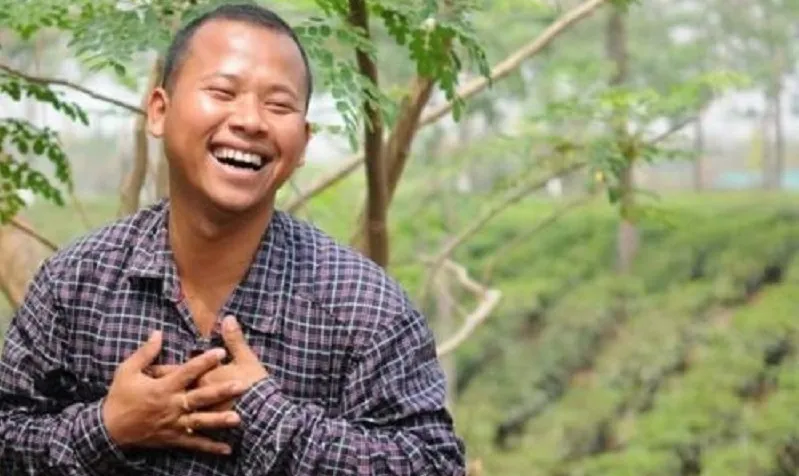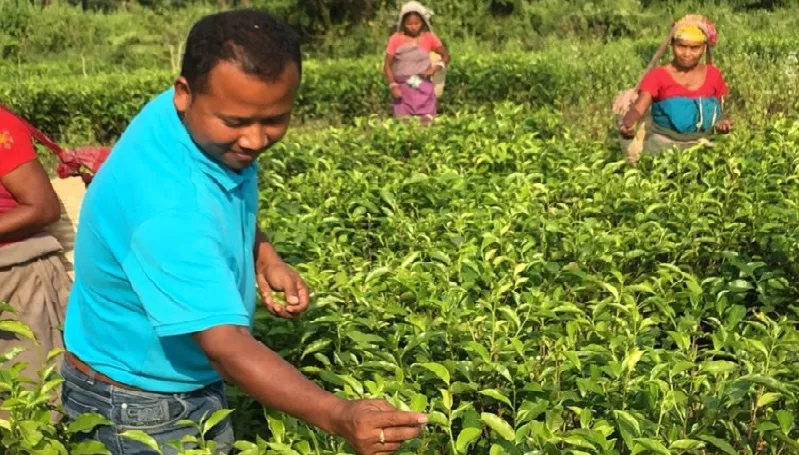Meet Tenzing Bodosa, owner of the world’s first elephant-friendly tea farms
At Tenzing Bodosa's lush green tea estates in Kachibari village in the Udalguri district of Assam, you will see hornbills, wild pigs, deer, and peacocks, but that's not all. At these two farms in the Bodoland area of the village, you will also come across more than 70 elephants, leading to their certification as the world's first elephant-friendly farms.

But this business, which now generates revenues of Rs 60–70 lakh, was not built overnight. At 10, Tenzing started looking after the ancestral farms after the death of his father. He took up alternative jobs to support his mother, who was the sole breadwinner in the family. In a conversation with The Better India, he said,
In those 13 years, I learnt everything — driving, mechanic work, how to control the machinery, and how to set up a small factory. This made me gain a lot of confidence to do almost all jobs.

The ancestral farms, which until then grew only paddy and vegetables, slowly experimented with tea owing to its rising demand. Tenzing met many tea farmers to understand the nuances of tea plantation. Most suggested using pesticides and fertilisers, and the family started facing serious health concerns. This is when they chose to switch over to organic farming.
My father, grandfather, and my mother had never used chemicals in our farm. They always used organic fertilisers made of cow dung and urine. We could not stand the smell of the chemicals. And then I saw that the fishes were dying in my pond. The pesticides were nothing but poison. Everyone starts their day with tea; I couldn’t have fed them poison, says Tenzing.
In 2007, he started growing tea organically and was the only one among 12,000 to be doing so. He set up a processing unit and has so far trained 30,000 farmers. Eventually, the markets in Canada, Germany, the US, and the UK opened up for him. Today, he owns 25 acres of land, 7.5 acres of which are devoted to the plantation of tea. The most fascinating part of the farms, however, is the area closest to the jungle, where he has planted bamboo trees for elephants to feed on. In a conversation with Greenpeace, he adds,
Lots of things are possible, you just need the bravery to try.
Do you have an interesting story to share? Please write to us at tci@yourstory.com. To stay updated with more positive news, please connect with us on Facebook and Twitter.







